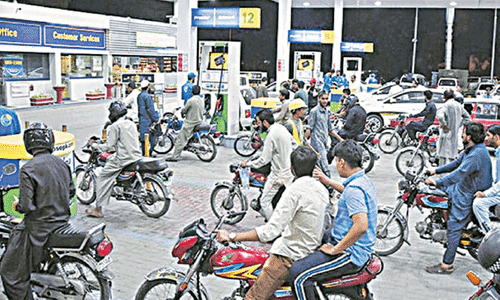MOSCOW: Russia’s central bank cut its main interest rate on Friday in a surprise move aimed at kick-starting the economy which is expected to contract sharply under the weight of Western sanctions and plunging oil prices.
The announcement to slash its key interest rate to 15 per cent from 17pc marked the first cut since December 2011.
The rate cut had come after the government urged the central bank to help boost the economy, prompting some analysts to accuse the bank of caving in to political pressure.
The rouble tumbled following the announcement, falling to 81 against the euro and 71 against the dollar. A day ago, it was trading at 77.6 to the euro and 68.73 to the dollar.
The bank argued that its action was “aimed at averting the sizeable decline in economic activity against the background of negative external factors”, apparently referring to US and EU sanctions as well as sliding crude prices.
It added that it had taken action now “due to the shift in the balance of risks of accelerated consumer price growth and cooling economy”.
Russia’s economy is expected to contract at an annual rate of 3.2pc in the first half of 2015, the bank said.
Output growth reached 0.6pc for 2014, official data showed Friday, nearly half of the 1.3pc reached in 2013.
The central bank’s chief Elvira Nabiullina said although the new rate remains “quite high and helps achieve goals on inflation in the medium term”, it “does not allow excessive cooling of the economy”.
Economists had largely predicted the central bank to hold the rate in order to keep a lid on inflation, although it slowed investment in the economy and bankers and industrial leaders were calling for a cut.
Although some economists backed the move, others accused the central bank of caving to political pressure.
“We generally welcome such a central bank decision and consider it positive for the economy and the market,” said Oleg Kuzmin of Renaissance Capital in a research note. He said the 17pc rate was too high and caused a “domestic credit shock”.
But Capital Economics analyst Liza Ermolenko said in a research note that the decision showed “growing political pressure from the government on the central bank to provide some support to the economy”.
Published in Dawn January 31st, 2015
On a mobile phone? Get the Dawn Mobile App: Apple Store | Google Play














































Dear visitor, the comments section is undergoing an overhaul and will return soon.